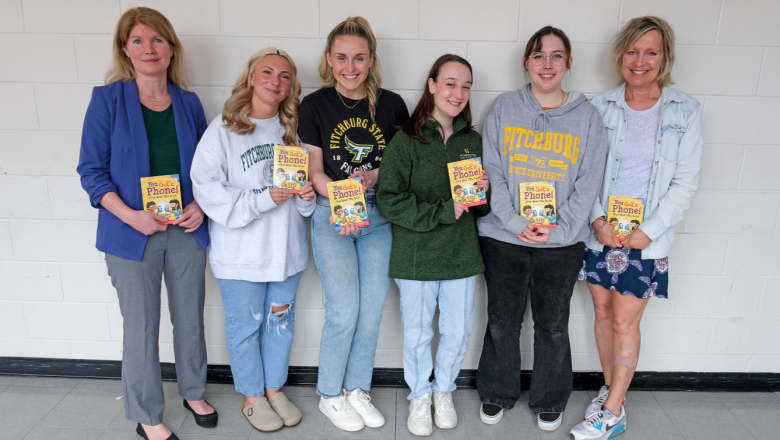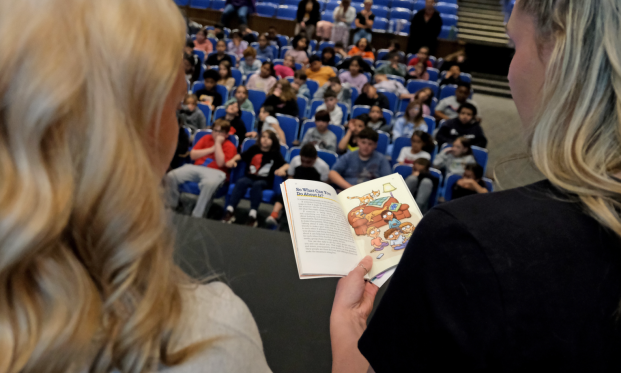
During a recent assembly of third-graders at McKay Elementary School, visiting teacher candidates from Fitchburg State University asked for a show of hands about who had access to internet-connected personal devices. Almost every hand shot upward.
That made them an attentive audience for the afternoon’s presentation, which was centered on lessons in Professor Katharine Covino’s co-authored guide “You Got a Phone! (Now Read This Book)” designed to help kids and families navigate the promise and perils of electronic devices.
Vivienne Charpentier, majoring in educational studies, read an excerpt about the challenge of feeling like the last person on Earth to have their own phone. “Your phone is really convenient, but sometimes it can cause problems,” she read. “Friends can misunderstand each other or get mad about something probably wouldn’t be a big deal in person. Sometimes it seems like the wrong emoji can start the next world war.”
Alyssa St. Cyr, studying elementary education, shared the importance of following rules that parents set about phone use. “Homework first, chores second, and screens third … maybe,” the book states. “If your parent calls or texts, answer them. That’s just basic respect.”
Caitlin Moriarty, studying English and secondary education, cautioned that misunderstandings can be common with texting, where important context - like facial expressions or a sarcastic tone - may be missing.
Julia Grace Ducharme, also studying English and secondary education, talked about the importance of consent in taking or sharing photos of friends.
Following the presentation, after each attending pupil was given a copy of the book to take home, the university students said they were surprised at the prevalence of devices among even young students.
“It’s the reality of our world,” Ducharme said. “We have to work as a team, with parents and schools.”
The lessons represent an important foundation for healthy device use, said Assistant Principal Katrina Murray. She expressed appreciation for the time the university students spent with the third-graders, and said a similar parent-facing program would also be valuable. Covino said her next book will target that audience.
“If that leads to a conversation at home, that’s what we’re looking for,” Murray said.
The program was supported in part by a grant from the Fitchburg Cultural Council, a local agency which is supported by the Mass Cultural Council, a state agency.
